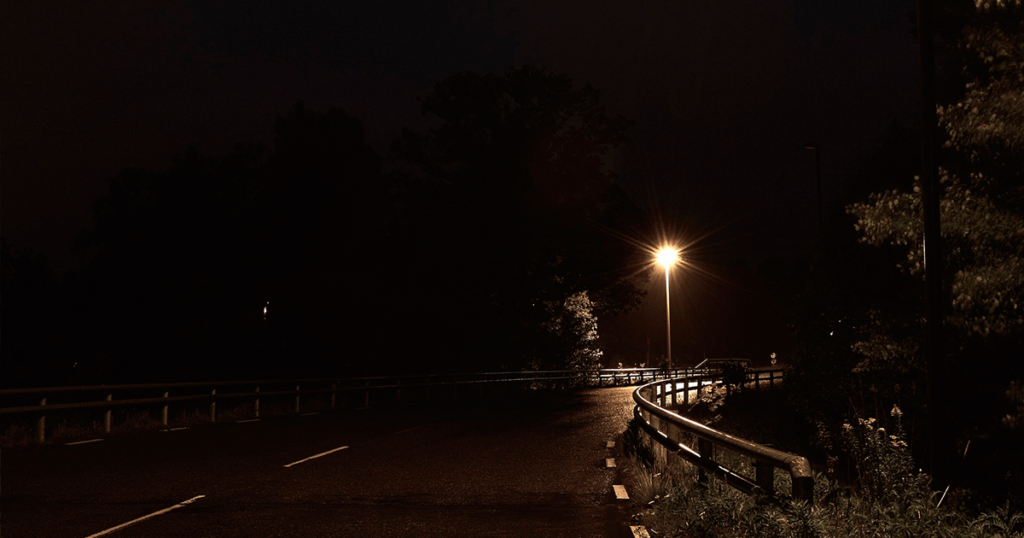
The school bus pulled onto the road in front of me. At the next corner, it took a left onto the Carretera Piles-Infanzón, and I followed. It was a drizzly morning, still dark, and in the streetlights the pavement glinted and the glossy black bus shimmered.
Enormous, intimidating, with tinted windows, these monster buses don’t seem the right vehicle for a handful of school kids, but in Spain the schools contract with private lines for school routes, determined according to the children who are enrolled. When this bus I was following eased off the sinuous Carretera Piles-Infanzón into the pullout at the start of the road I needed to take, filling the pullout and blocking my turn, I guessed a child lived in the big house on the corner. I was stuck in the main road, so I put my flashers on and waited.
The yellow school buses I remember from the States had a lot of blinking lights and even a stop sign that unfolded from the driver’s side when the kids got on or off. Nothing like that here, and unless you are on the lookout, you can’t tell a tour bus from a school transport. But I knew to wait, and would have even were the bus not blocking my way.
The bus swayed as it came to a full halt under a streetlight, half on the road, half off, and a boy appeared from out of the morning gloom, a leather book satchel strapped to his back, and scurried towards the bus doors, close to where he must have stood waiting. Through the gates behind him and behind a high wall was the house on well-tended grounds, a place worth a fortune. Why didn’t he have a chauffeur to drive him door to door, I wondered, instead of a housekeeper to stand with him in the wet morning? What good would she be in the face of danger?
From my position behind the bus and slightly to the side, the greatest danger seemed to be myself. The road was wet, the curve sharp, my car was old. What if I’d come along behind the bus a little too fast on the last curve? Or, as I waited in the road, what if another car bore down on me and in my mirror I saw its headlights and tried to edge out of the way but couldn’t and was knocked forward? There was no shoulder at all, nothing to turn into, and I saw myself propelled along the side of the bus, striking the boy. I imagined the car careening down on me, and wondered if I could steer away from the little boy and his horrified housekeeper. But where? Into the back of the bus, as solid as a wall? Could I, should I, sacrifice myself to save the boy? My own sons would miss me more than they knew. They weren’t ready to be on their own. I sat there in the dark, nearly tearful, watching the defenseless boy whose death I had briefly imagined wave goodbye to the housekeeper from the steps of the bus. Then the door shut behind him and he was borne away to the pricey private school down the road, the housekeeper turned back into the walled estate, and I quit feeling sorry for them.

